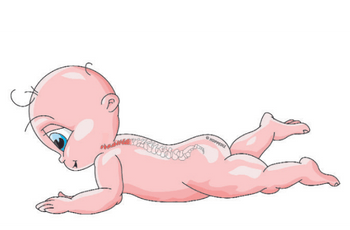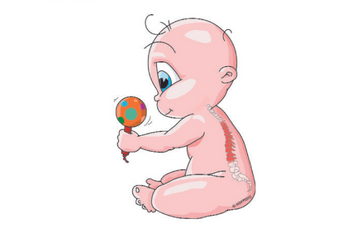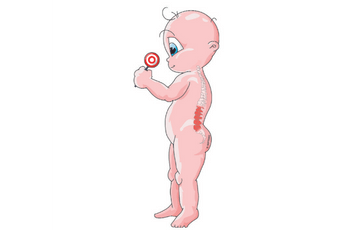HOPPEDIZ® - your expert in babywearing since 1999!
Prejudices about baby carrying
Prejudice: The child is pampered too much.
To say it clearly: No child can be spoiled when carried! Quite the contrary: the basic need for nearness, warmth, love and security is met. The little ones will grow out of the carrying age by themselves and will discover the world with the basic trust that was supported by being carried.
Studies of the research unit for human ethology of the Max Planck Gesellschaft substantiate this: infants and toddlers in traditional cultures enjoy constant body contact with their mothers, fathers and siblings – in contrary to our Western industrial societies. They are independent earlier than the children of the same age in the US and Western Europe.
Prejudice: being carried causes postural defects
Quite to the contrary: a correctly tied sling or a well-fitting carrying aid supports the natural posture. For almost 10 months, the baby's spinal column is curved in the mother’s womb. First it needs to straighten out slowly (between one and two years) to attain the S shape of an adult. That’s why the spread-squat position in the sling is important. A study of Kirkilionis with 192 carried children originating from indigenous people show that the frequency of wrong postures among these children is below the average rate.
In the following steps the spine of an infant reaches its S-curve:

The cervical vertebrae stretch upwards or forwards when the baby can hold its head.

The thoracic vertebrae stretch when the baby can sit on its own.

The lumbar vertebrae carry the baby when it begins to pull itself up on objects or to stand and walk.
Prejudice: carrying causes postural defects
This might be the case if parents suffer from a previously damaged back - please consult your doctor or a physiotherapist regarding whether carrying is possible if you already suffer from (acute or chronic) back problems. For all others: correct carrying (i.e. a correctly tied sling, an ideally adjusted carrying aid, child near to your body and a break from carrying) will not cause any posture defects.
Prejudice: The child does not get enough air
If you ensure that the nose of your baby is free you won’t run into any problems. Your movements will cause the air within the sling to circulate and provide a replacement of fresh air. It is also important not to overdress babies in the sling, and maybe also under a jacket because babies suffer from overheating more than freezing.
The "Cologne study" regarding the oxygen intake of premature babies in the sling (study of the University of Cologne) purports that the oxygen intake of a newborn baby in the sling is only about 1% less than without the sling because the baby in the sling breathes much more regularly and calmly.